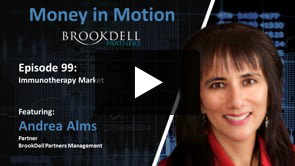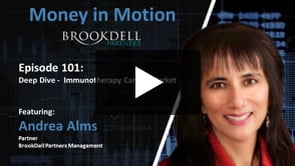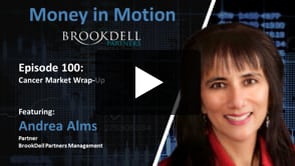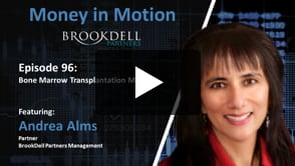Hedge Fund Dashboard:
Top Hedge Fund News, Member Posts, Hedge Fund Daily Indices and more!
Maintaining momentum and seizing opportunity
Submitted 03/11/2020 - 1:01pm -There are several macroeconomic factors which support further growth in the private equity, venture capital and real estate space in Luxembourg. Although events like Covid-19, the Brexit transition, US elections and the US-China trade war may damage this potential, managers can also find opportunity in the turmoil.
“There are huge amounts of capital in the markets. Unlike during the GFC, there is no shortage of debt, we’re not in a liquidity crisis. And we are still in a low interest environment – which isn’t going to change any time soon, so we’re going to see more money continue to move into the alternatives sector. When you look at fund raising in the first half of 2020, yes, numbers are down compared to last year, but still at very healthy levels especially given the difficult context we’re in with Covid-19,” comments Anita Lyse, Head of Real Estate, Alter Domus.
However, given the prospective speed bumps ahead, Lyse notes: “Even though there are positives out there today and bright spots on the horizon, I don’t think the markets overall will be fully back on track until the end of next year, at the very earliest. No one is able to predict the full economic and social impact that Covid-19 will have in the end. Additionally, there are other factors impacting the markets too; Brexit transition, the US elections, and the US-China trade war are all elements that add to the uncertainty across the markets – but which can also create great opportunities for those that are a bit more bullish and able to navigate through all this. So, managers will fare well or potentially struggle for longer depending on their investment strategies, the geographies they focus on, and their ability to cut through the noise and find opportunities.”
Keeping up the pace
Discussing the role Luxembourg plays in these developments, Lyse identifies a few areas in which the jurisdiction needs to keep on its toes to maintain the pace of growth it has experienced over the years.
“Luxembourg needs a strong regulator. It is important to our clients and investors that Luxembourg enjoys a strong reputation as a financial centre, and the CSSF’s contribution to that effect is key. Its ability to adapt to an ever changing environment is equally key.
“Generally speaking, I think Luxembourg authorities, including the financial regulator, have always done a pretty good job in being close to the industry participants, listening to their challenges and market trends, and being smart about how to best adapt the overall framework. They have also worked to be among the best in class in implementing new legislation and regulation, be it from the EU or the OECD,” she says.
According to Lyse, intelligent management of resources is another critical building block: “There is a resource constraint in Luxembourg, so attracting and retaining talent has been on companies’ agenda for a while already. Having a clear strategy on this is clearly on our agenda too as we continue our efforts to maintain and develop our employer value proposition.
“In addition to that, we have set up alternative service delivery centres outside of Luxembourg to mitigate that resource constraint. We have not wanted to go to low cost centres, nor go outside of Europe, so we set up in Cork in Ireland a few years ago where we now perform primarily fund administration tasks. Contrary to what some may think, this is not at all about margin improvement as I think there are other and better ways to achieve that. The rationale is rather about capacity planning and ensuring we have resources that are able and available to onboard and manage the new business that comes in the door as we continue to enjoy a double-digit organic growth rate.”
Moreover, continued focus on technology and innovation will further support Luxembourg’s growth in the alternatives arena. Lyse remarks: “Since the lockdown in March this year, we have seen people and companies embrace technology a lot more, including digital solutions for signing documents, holding board meetings, and so on. This is great, but we need to continue to push this even further. For example, the legal validity of electronic signatures should be more widely accepted so that we can perhaps stop asking for wet ink signatures on certain types of documents.
“Overall, there is also a trend and pressure to continue to push for increased use of smart technology, robotics and process automation in order to gain speed in operations and deliverables and reduce costs. This is also an area in which we as a firm continue to invest heavily, both implementing better, more integrated and truly global systems, and also adding robotics to a number of our recurring processes.”
KYC and onboarding challenges
Lyse highlights the challenges which lie within the Know Your Customer (KYC) and investor onboarding process: “This is an area that can sometimes cause a bit of frustration for our clients, especially those operating internationally with the obligation to go through this process in multiple jurisdictions. The AML/KYC rules should, in principle, be the same across all member states as they are set by the EU. However, there can often be certain tweaks or discrepancies in the way, and also in how quickly, these EU directives are transposed into national law by the different countries.
“If you look at it from a Luxembourg perspective alone, the fund manager needs to transmit KYC documents to a number of parties; banks, lawyers, fund administrators, etc. Whilst the rules will be the same for all, the client experience with each of these providers may be slightly different as each one in their own way goes through the process of fully understanding the intended structure and identify the ultimate beneficial owner. A potential solution to this could be implementing a centralised body that sets best practices throughout the industry, or even – going a step further – that could centralise the entire KYC function for the whole community. But that may be wishful thinking at this stage.”
Meanwhile, to help streamline this process, Alter Domus has launched initiatives to digitise the onboarding process through an investor portal, and after a successful launch in some of our other locations, we are aiming to fully deploy this in a very near future also in Luxembourg. This helps to put the investor in the driving seat of the process and provides full transparency to both the investor and the manager around where things stand, which items are missing and which ones would potentially be blocking, for a distribution for example.
Client needs in Luxembourg have evolved over the last few years. In Lyse’s view, the most significant change has been around the need for third party AIFMs. “The model of using a third party AIFM has not only gained a lot more acceptance but also become very much sought after as an alternative for managers trying to set up their own AIFM, which we all know can be very time and cost consuming.
“We have had our own AIFM solution in place for a few years, and have seen first-hand that huge demand in services translate into a tremendous increase in our assets under management, growing from only a couple of billions of AUM three years ago to now reaching almost EUR 30 billion of committed capital,” she outlines.
The demand comes on the one hand from non-EU fund managers wanting to tap into European capital with mostly the US, and over the last years also the UK managers at the forefront. Lyse points out that many smaller fund managers and new market entrants are also opting for the third party model: “Some of these will view that model as short-term; to use until they reach a critical size for them to set up their own AIFM. Others will take a different view on it and be happy to outsource this function longer-term. This will allow them to really focus on raising and deploying capital in the best interest of their investors.”
The Brexit view
With Brexit, Luxembourg has also witnessed an enormous demand from UK managers looking for an alternative gateway to the single market. Commenting on the continued impact of the Brexit transition on the Luxembourg industry, Lyse states: “We started to see an acceleration before the Brexit vote as companies tried to anticipate and implement strategies to mitigate any risks that a ‘yes’ vote would have on their own operating model. Uncertainty isn’t something managers or investors are very fond of in order to conduct their business in a sustainable fashion.
“This trend obviously accelerated even further after the vote and Luxembourg became the go-to place for many managers and investors, given its strong position as the largest financial centre for fund servicing in Europe and also among the largest globally. How the relationship and agreement between the UK and the EU will be worked out is still uncertain, but it will be in everyone’s best interest to get something in place that works for all parties. I expect Luxembourg will take a very pragmatic approach to this and will be keen on getting a reasonable arrangement in place as quickly as possible.”
Anita Lyse
Global Head of Real Estate, Alter Domus
Anita joined the company in 2001. Over the years she has worked with some of the world’s largest private equity and real estate funds, and developed her expertise in management, accounting and financial reporting, corporate tax and legal aspects of Luxembourg vehicles set up by such investors. Before joining Alter Domus, Anita was a market analyst at Alcatel Business Systems’ Mobile Phone Division, in charge of all country-by-country quantitative analysis and support. Anita holds a MSc in Business and Economics from the University in Toulouse, France. She is also a member of the Luxembourg Ordre des Experts Comptables (Luxembourg body for certified chartered accountants).
Author Profile Tags Funds Legal & Regulation ServicesToday's Hedge Fund Headlines:
Access Over 250K+ Industry Headlines, Posts and Updates
Join AlphaMaven
The Premier Alternative Investment
Research and Due Diligence Platform for Investors
Free Membership for Qualified Investors and Industry Participants
- Easily Customize Content to Match Your Investment Preferences
- Breaking News 24/7/365
- Daily Newsletter & Indices
- Alternative Investment Listings & LeaderBoards
- Industry Research, Due Diligence, Videos, Webinars, Events, Press Releases, Market Commentary, Newsletters, Fact Sheets, Presentations, Investment Mandates, Video PitchBooks & More!
- Company Directory
- Contact Directory
- Member Posts & Publications
- Alpha University Video Series to Expand Investor Knowledge
- AUM Accelerator Program (designed for investment managers)
- Over 450K+ Industry Headlines, Posts and Updates








